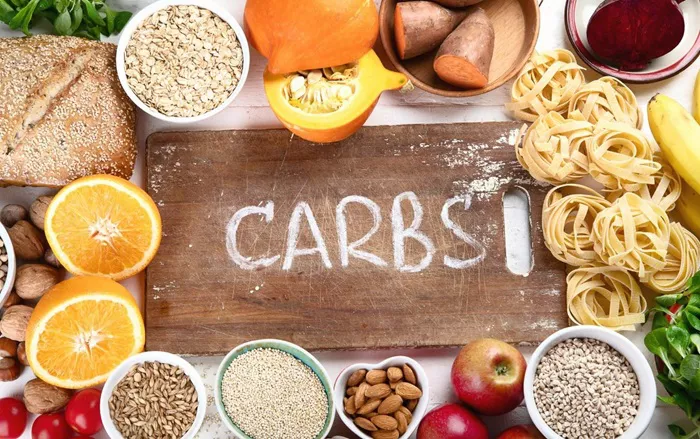In the world of fitness and sports, nutrition is just as important as physical training. Among all nutrients, carbohydrates hold a unique position. Athletes across various disciplines often consume carbs before workouts. But why? This article explores the science behind this common practice. It breaks down how carbohydrates serve as the primary energy source, how timing impacts performance, and what types of carbs athletes should consume. Whether you’re a professional athlete or a fitness enthusiast, understanding the connection between carbs and performance can help you train smarter and recover better.
Understanding Carbohydrates: The Body’s Main Energy Source
Simple vs. Complex Carbohydrates
Carbohydrates come in two main forms: simple and complex. Simple carbs include sugars like glucose and fructose. They are found in fruits, honey, and processed snacks. Complex carbs include starches and fibers found in foods like oats, brown rice, and sweet potatoes. The body breaks these down into glucose, which it uses for energy.
How Carbs Are Stored in the Body
When you consume carbohydrates, the body converts them into glucose. Some of this glucose is used immediately for energy. The rest is stored as glycogen in the muscles and liver. During exercise, especially high-intensity or endurance workouts, glycogen is the first and most efficient fuel source your body taps into.
Why Carbohydrates Are Essential Before Exercise
Immediate Energy Availability
Carbohydrates are digested faster than proteins or fats. Eating carbs before a workout ensures that glucose is readily available in the bloodstream. This helps maintain blood sugar levels and provides energy to working muscles, allowing for higher intensity and longer duration of exercise.
Delaying Fatigue and Enhancing Endurance
Low glycogen stores lead to quicker fatigue. This is particularly critical in endurance sports like running, cycling, or swimming. A pre-workout carbohydrate meal delays the depletion of glycogen, allowing the athlete to perform longer without feeling exhausted.
Improved Mental Focus and Reaction Time
The brain also runs on glucose. Consuming carbohydrates before physical activity enhances mental sharpness and decision-making, which is crucial in competitive sports. Reaction times improve, and focus remains sharp throughout the session.
Optimal Timing and Types of Carbohydrates
When to Eat Carbs Before a Workout
The timing of carbohydrate intake can impact performance. Eating a large meal with complex carbs 2–3 hours before exercise allows for proper digestion and glycogen storage. For shorter windows (30–60 minutes), easily digestible simple carbs like fruit or a sports drink are preferred.
Best Carbohydrates to Eat Before Exercise
- Whole grain toast with peanut butter
- Bananas or apples
- Oatmeal with honey
- Rice or pasta with lean protein (if eaten 2–3 hours ahead)
- Sports drinks or gels for quick absorption
The Science Behind Carbohydrate Loading
What Is Carb Loading?
Carbohydrate loading is a strategy used by endurance athletes to increase muscle glycogen stores. It involves consuming higher amounts of carbs for several days before a big event. This practice improves performance in activities lasting more than 90 minutes.
Scientific Evidence Supporting Carb Loading
Research consistently shows that carb loading enhances endurance and delays fatigue. Studies have found that athletes who follow a carb-loading regimen can improve their time-to-exhaustion by up to 20% in endurance events.
Carbohydrates and Muscle Recovery
Post-Workout Glycogen Replenishment
After a workout, muscles are depleted of glycogen. Consuming carbohydrates within 30–60 minutes post-exercise helps replenish these stores faster. This supports recovery and prepares the athlete for their next training session.
Pairing Carbs with Protein
Combining carbohydrates with protein post-exercise enhances muscle repair and glycogen resynthesis. A 3:1 or 4:1 carb-to-protein ratio is often recommended for optimal recovery.
Common Myths About Carbohydrates in Sports Nutrition
Myth: Carbs Make You Gain Fat
This is a common misunderstanding. Carbohydrates do not cause fat gain unless consumed in excessive amounts. Athletes burn more calories due to training, making carbs a necessary and beneficial nutrient rather than a harmful one.
Myth: Low-Carb Diets Are Better for Athletes
While low-carb diets may benefit some people for weight loss, they are generally not suitable for athletes. Performance, especially in high-intensity sports, relies on quick-access energy that only carbohydrates can provide effectively.
How Athletes Customize Their Carbohydrate Intake
Individual Needs Vary by Sport
Not all sports require the same carb strategy. Endurance athletes typically need more carbohydrates than strength athletes. However, both benefit from tailored pre-workout carb intake based on the intensity and duration of activity.
Listening to the Body and Monitoring Performance
Athletes often track how their body responds to different pre-workout meals. This trial-and-error method helps refine the ideal timing and type of carbs that deliver peak performance with minimal discomfort.
Real-Life Meal Ideas for Pre-Workout Energy
Here are some real examples of pre-workout meals designed to provide high-quality carbohydrates and sustained energy:
- 2–3 hours before: Brown rice with grilled chicken and steamed vegetables
- 1 hour before: Greek yogurt with a banana and a drizzle of honey
- 30 minutes before: A piece of fruit or a granola bar
Healthy Eating Around Workouts
Planning meals around training is essential. Athletes should aim for well-balanced meals throughout the day, not just before workouts. For post-workout nutrition, options like healthy After Gym Meals can support muscle repair and recovery. Incorporating Healthy Gym Meals into your weekly routine ensures sustained energy and better performance outcomes over time.
Conclusion
In conclusion, carbohydrates play an irreplaceable role in athletic performance. They provide the fuel necessary for high-intensity efforts, support mental clarity, delay fatigue, and improve recovery. Athletes who strategically consume carbs before workouts benefit from greater endurance, strength, and focus. Whether you’re preparing for a marathon or a strength-training session, choosing the right carbs at the right time can make all the difference. Never underestimate the power of a well-timed meal—it could be the key to unlocking your full athletic potential.
Related Topics:
What Should I Stop Eating to Lose Belly Fat


